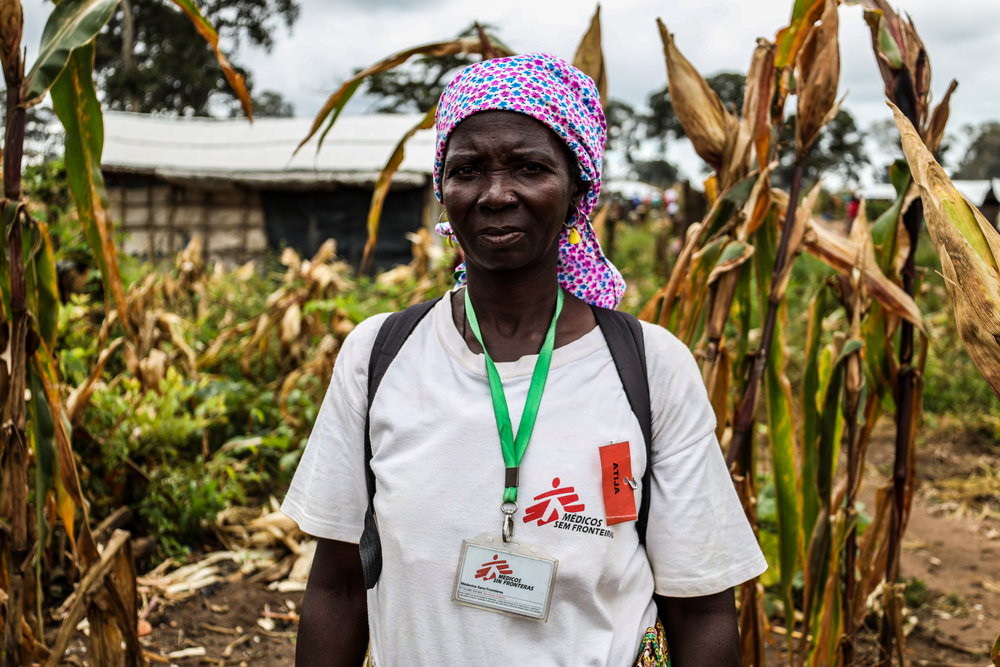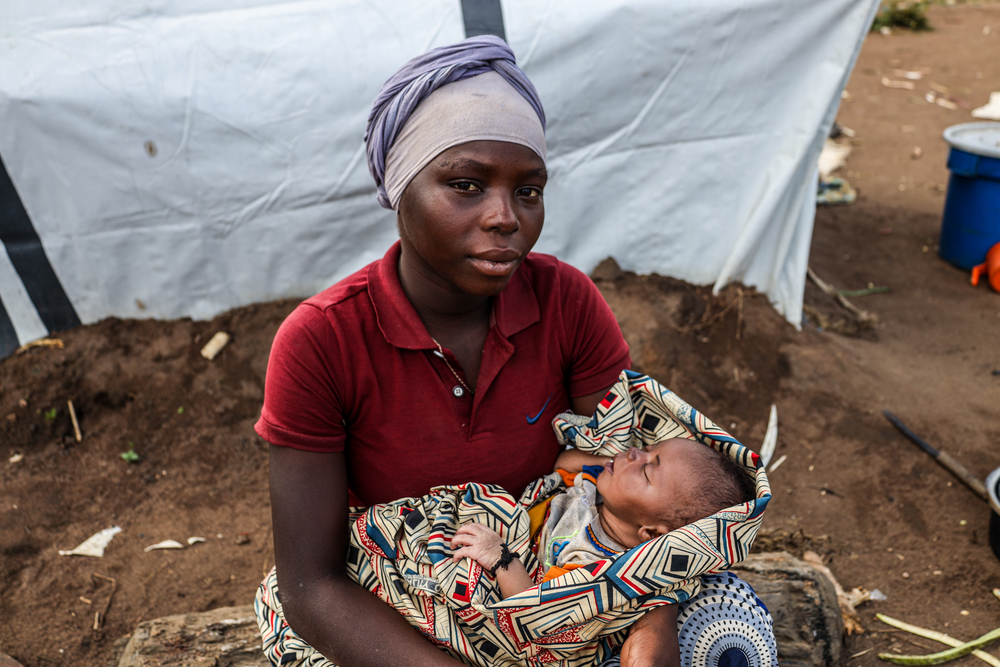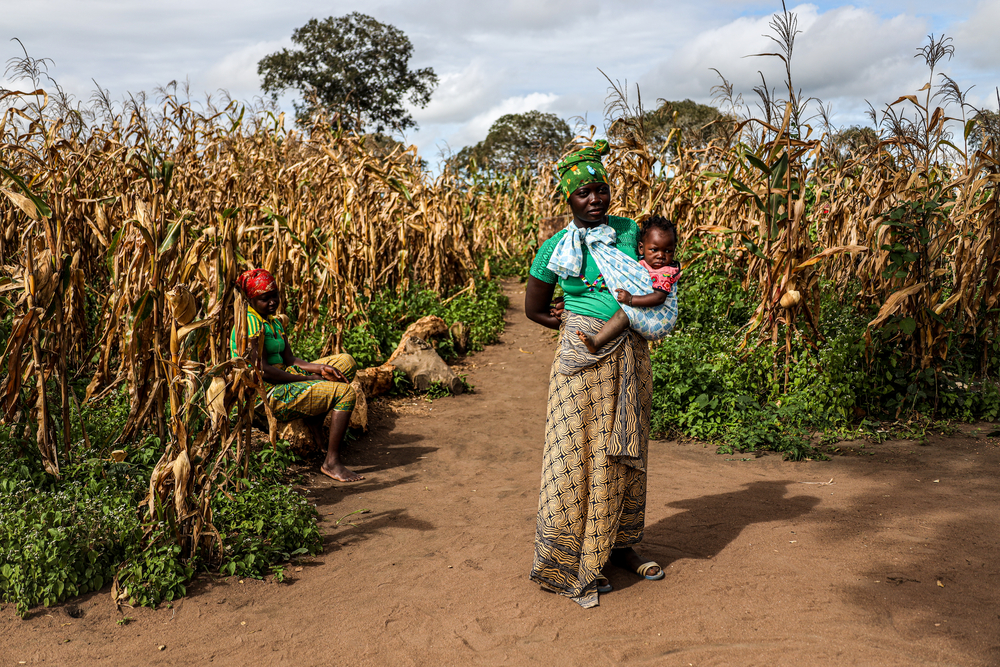Atija Bacar is 66 years old and lives in Eduardo Mondlane, a camp for people who are internally displaced in Mueda, Cabo Delgado, Mozambique. She is originally from Mocímboa da Praia, a town that has been heavily hit by attacks in the ongoing conflict in the northern province. Atija works with Doctors Without Borders/Médecins Sans Frontières (MSF) as a pregnancy and childbirth care provider living in the community, and assists more than 100 women in the camp.
Like many of them, she has lived through traumatic experiences, including witnessing the murders of her husband and son. Now, she says she loves doing her job since she can help women in their time of need:
When I arrived here, this place was a forest. Some good people helped me to get settled. Now I can also help pregnant women. I know they need my support.

In Cabo Delgado, ongoing violence has forced hundreds of thousands of people to flee their homes in search of safety. Eduardo Mondlane camp is home to more than 2,000 displaced families.
Displaced women and children are particularly vulnerable and face multiple challenges.
Many of them have walked long distances and left their families behind, and many were separated from their loved ones or witnessed their deaths due to murder or poor living conditions and lack of medical care. Many pregnant women in the camp are still very young and have little to no information about pregnancy and childbirth.

Since October 2021, the MSF health promotion team in Mueda has partnered with community leaders and traditional birth attendants in Eduardo Mondlane camp in order to support pregnant women and young children. One of their main goals is to have more women go to the hospital when in labor so they can be supported in having a safe birth in a sanitized space.
Atija and other birth attendants organize regular talks with pregnant women to pass on health promotion messages, practical logistical information, and let them know about MSF’s transportation services to the hospital. A chopela, a small motorized three-wheeled vehicle, is always available for transport. The birth attendants also conduct regular follow-up visits with women before and after childbirth.
MSF’s community work with traditional birth attendants in Eduardo Mondlane is ongoing, but the team is already thrilled with the positive results the initiative is seeing for women and families. In January 2022, 33 percent of the pregnant women from Eduardo Mondlane camp delivered their babies at a medical facility. In April 2022, that number reached 75 percent.

